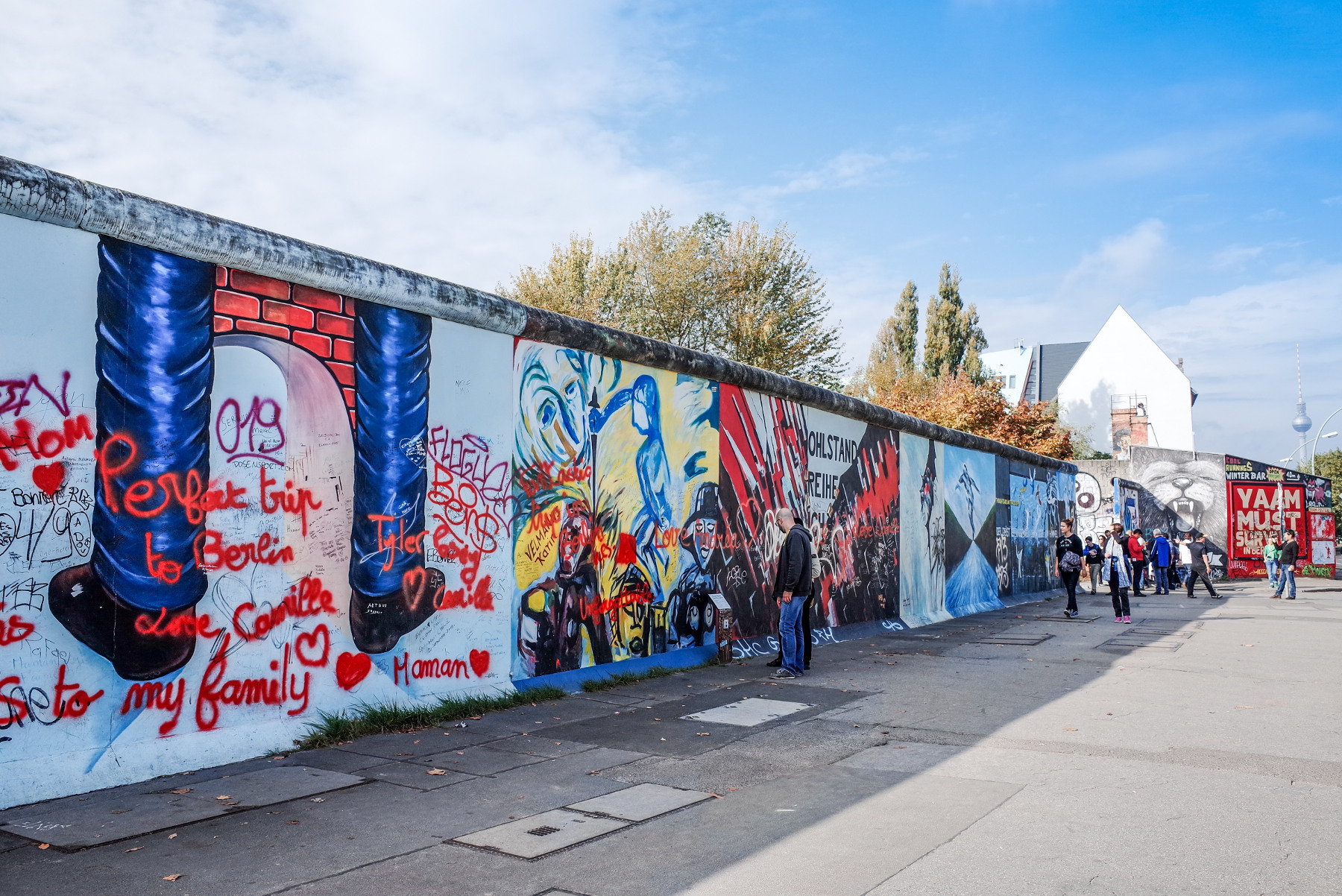On the 9th November, Germany celebrated 30 years since the beginning of the fall of the Berlin Wall.
To mark the occasion, vast celebrations took place across the city. From a concert with fireworks on Saturday night by Berlin’s iconic Brandenburg gates, to the images of events around the day the wall fell being projected on various buildings around the city, a Trabi procession through the streets of Berlin, and even the launching of a Tresor-scented perfume; Germany is not shying away from acknowledging its past.
A symbol of pain, division and oppression, and yet we still have not fully learnt our lessons from the Berlin Wall, as we continue to impose societal divides.
During her speech last Saturday, German Chancellor Angela Merkel said that “we want to ensure that no wall will separate people ever again.” While this may be her stance in Germany, this certainly does not represent the opinion of all citizens elsewhere.
Of course, the first case that comes to mind when talking about building walls to separate people in the present day is Trump and his proposed wall along the Mexico border. While I may side with the 31% of sampled Americans that think that the wall is “totally unnecessary and not worth the expense,” it is frightening that an even greater percentage of Americans think that the wall is “the best path for making America safer at its borders,” with 34% of respondents, according to a new Hill-HarrisX survey. After seeing the devastation as families are separated along the US-Mexico border, the support for implementing this societal division, for me, is beyond comprehension.
This imbedded sense of division hits even closer to home when looking at individuals’ motives around Brexit; a recent UK and EU survey showed that the majority of leave voters said that their primary reason for voting leaving was because they “wanted the UK to regain control over EU immigration.” Maybe we’re not going to be constructing a physical wall any time soon, but it certainly feels like we are building ourselves a somatogenic wall, with people wanting to divide based on the notion of “us” versus “them.”
Despite all of the horrific experiences of Berlin citizens at the hands of the Berlin Wall, Germany is still far from being immune to the effects of these divides. As noted by German President Frank-Walter Steinmeier in his speech on the 9th, “a new wall has arisen that cuts through our country”; the rise of the far right. A rise in migrant crime in Germany since Merkel’s relaxation of migration laws during the height of the European migrant crisis has contributed to hatred towards immigrant populations, and less than half of East Germans believe the reunification has been a success, with some comparing current Germany to “East Germany 2.0,” as a result of the alleged enforcement of ideas of inclusivity and political correctness. According to pastor Theo Lehmann, these days you “have to measure every word you say”; strong words coming from someone who was persecuted in the old East Germany.
So why haven’t we learnt anything from the Berlin Wall? Why do we continue to set up these barriers between ourselves, dividing ourselves on the lines of race?
If you go to Berlin, be sure to look out for the line along the pavement that divides the city, for here the full Berlin Wall once stood. Look at the parts of the Berlin Wall that are still erect in their original place, and remember the pain and oppression that this division caused.
And, to reuse my earlier quote from Angela Merkel, I hope that “no wall will separate people ever again.”
Image: Lonely Planet

